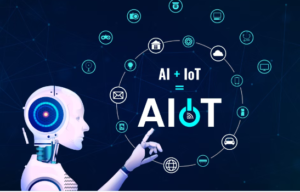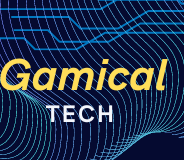
The integration of Artificial Intelligence (AI) into the Internet of Things (IoT) is revolutionizing how devices communicate, analyze data, and make decisions. This synergy between AI and IoT not only enhances the functionality of connected devices but also leads to improved operational efficiency across various industries. Here’s how AI plays a pivotal role in IoT, focusing on predictive maintenance, data analytics, and decision-making.
1. Predictive Maintenance
One of the most impactful applications of AI in IoT is predictive maintenance, particularly in industrial settings. By utilizing AI algorithms, IoT devices can analyze data collected from machinery and equipment to predict failures before they occur.
How It Works:
- Data Collection: IoT sensors continuously monitor the health and performance of machines, capturing data such as temperature, vibration, and operational speed.
- Analysis: AI processes this data to identify patterns and anomalies that could indicate potential failures.
- Alerts: When a risk is detected, the system generates alerts for maintenance teams, allowing them to address issues proactively rather than reactively.
Benefits:
- Reduces downtime by preventing unexpected equipment failures.
- Lowers maintenance costs by scheduling repairs only when necessary.
- Extends the lifespan of machinery through timely interventions.
2. Enhanced Data Analytics
AI dramatically enhances the data analytics capabilities of IoT systems. IoT devices generate massive amounts of data, and AI helps to sift through this data to derive meaningful insights.
How It Works:
- Real-Time Processing: AI algorithms can analyze incoming data streams in real time, enabling immediate insights.
- Machine Learning Models: These models learn from historical data to improve accuracy in forecasting trends, user behaviors, and system performance.
- Automated Reporting: AI automates the generation of reports, highlighting critical insights and trends for stakeholders.
Benefits:
- Facilitates better understanding of customer preferences and market trends.
- Empowers businesses to make informed decisions based on comprehensive data analysis.
- Optimizes operational processes by identifying inefficiencies.
3. Improved Decision-Making
AI augments decision-making processes in IoT systems, transforming raw data into actionable insights that inform strategic choices.
How It Works:
- Predictive Analytics: By predicting future trends and behaviors based on historical data, AI enables organizations to anticipate market shifts and adjust their strategies accordingly.
- Automated Decision-Making: In some IoT applications, AI can automate decision-making processes. For instance, smart irrigation systems use AI to determine the optimal watering schedule based on weather forecasts and soil moisture levels.
- Scenario Simulation: AI can simulate various scenarios to evaluate the potential impact of different decisions, allowing organizations to explore outcomes before implementing changes.
Benefits:
- Enhances agility and responsiveness to changing conditions in the market.
- Reduces the risk of human error in decision-making.
- Increases overall efficiency by streamlining processes and resource allocation.
4. Use Cases Across Industries
AI’s role in IoT extends across various sectors, each benefiting uniquely from this powerful combination:
- Smart Cities: AI analyzes data from IoT devices to optimize traffic flow, enhance public safety, and improve energy efficiency.
- Healthcare: Wearable devices monitor patient health metrics in real time, with AI alerting healthcare providers to potential health issues before they escalate.
- Agriculture: AI-driven IoT devices monitor soil conditions, weather patterns, and crop health, allowing farmers to make informed decisions that maximize yield.
Conclusion
The integration of AI into IoT systems is transforming industries by enhancing functionality, enabling predictive maintenance, and facilitating improved decision-making. As AI technologies continue to advance, their role in optimizing IoT will only grow, leading to smarter, more efficient systems that redefine operational capabilities across sectors. The future of IoT, empowered by AI, promises to deliver unprecedented levels of innovation and efficiency, creating opportunities that were previously unimaginable.
visit: gamicaltech.com
